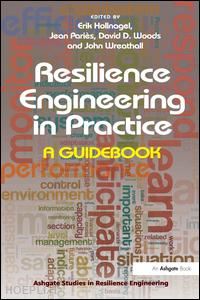Erik Hollnagel (Ph.D., psychology) is Professor and Industrial Safety Chair at École des Mines de Paris (France), Professor Emeritus at University of Linköping (Sweden), and Visiting Professor at the Norwegian University of Science and Technology (NTNU) in Trondheim (Norway). He has since 1971 worked at universities, research centres, and industries in several countries and with problems from several domains, including nuclear power generation, aerospace and aviation, air traffic management, software engineering, healthcare, and land-based traffic. His professional interests include industrial safety, resilience engineering, accident investigation, cognitive systems engineering and cognitive ergonomics. He has published more than 250 papers and authored or edited 17 books, some of the most recent titles being The ETTO Principle (Ashgate, 2009), Resilience Engineering Perspectives: Preparation and Restoration (Ashgate, 2009), Resilience Engineering Perspectives: Remaining Sensitive to the Possibility of Failure (Ashgate, 2008), Resilience Engineering: Concepts and Precepts (Ashgate, 2006), and Barriers and Accident Prevention (Ashgate, 2004). Erik Hollnagel is Editor-in-chief of Ashgate Studies in Resilience Engineering and, together with Pietro C. Cacciabue, Editor-in-Chief of the International Journal of Cognition, Technology & Work. Jean Pariès graduated from the French National School of Civil Aviation as an engineer, then joined the DGAC for several positions dealing with air safety regulations. He was a member of the ICAO Human Factors & Flight Safety Study Group since its creation in 1988. In 1990, he joined the Bureau Enquêtes Accident as Deputy Head, and Head of Investigations, where he led the technical investigation into the Mont Saint-Odile air accident, 1992. In 1994, Jean left the BEA to be a founding member - and now the CEO - of Dédale SA. Set in Paris and Melbourne (Australia), Dédale activity focuses on the Human and Organisational dimensions












